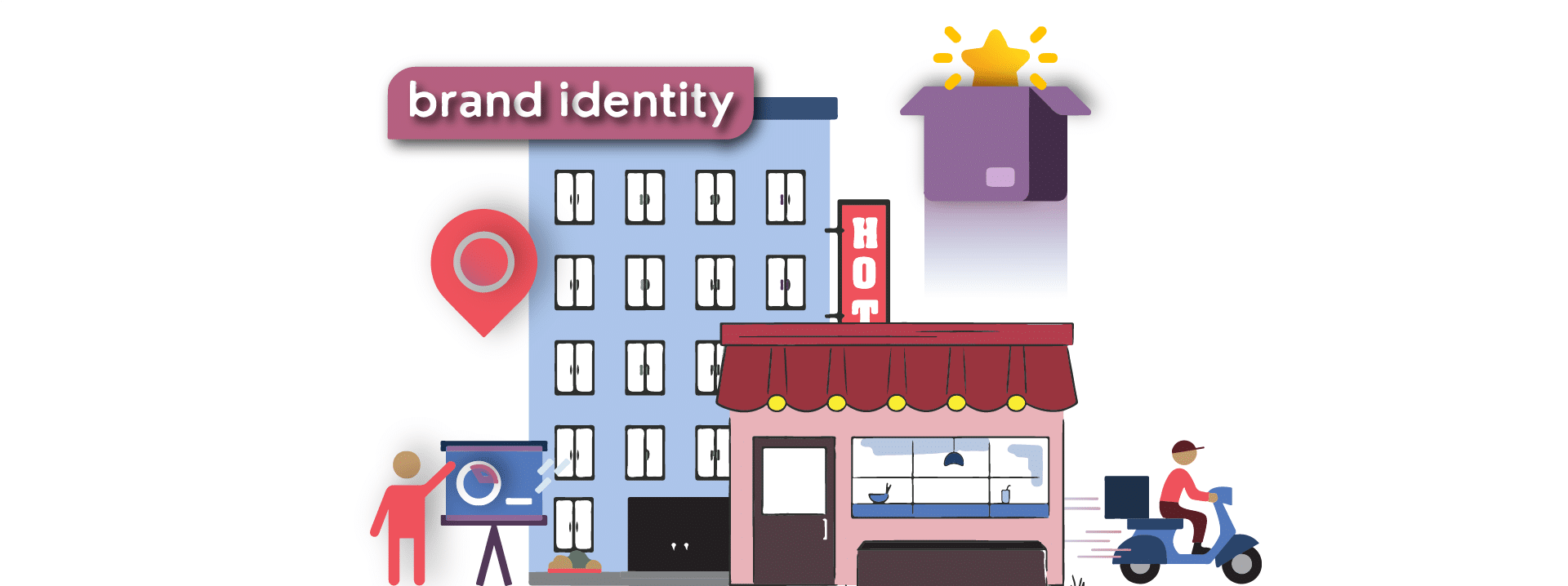As competitiveness within the hospitality business increases, hotels must continue expanding their services to draw in crowds. Since the internet has made it easier for travelers to compare every aspect of a hotel, one needs to be at the top of their game, analyzing Big Data to boost sales and revenues.
One feature that is slowly becoming an essential part of every hotel, irrespective of its size, is an in-house food and beverage establishment. Whether a mix of restaurants, a solitary eatery, or a casual snack bar, you are more likely to attract travelers by having a restaurant than not.
Before we delve into how to market your hotel restaurant, let us first understand why having one is advantageous.
Advantages of having an on-site restaurant
An in-house hotel restaurant might seem like an extra effort for many small hotel owners. However, it can benefit both the guests and revenue generation.
- First and foremost, travelers prefer hotels with restaurants as it is convenient, especially if they are visiting the city for the first time. Moreover, families like having a place to eat close by. That is also why hotels located in neighborhoods with lots of restaurants tend to be more popular.
- At the same time, a restaurant provides the hotel with an alternate form of revenue. You can further supplement income by opening the restaurant to the non-residential public.
- Another benefit of having an on-site restaurant is that a restaurant is a year-round venture, unlike hotel bookings that may rise and fall as per season. It can help bring in money when room sales are low. The trick, though, is to make the restaurant appealing to not only visiting guests, but also the locals.
- Budget being a constraint, having an elegant in-house restaurant is not always necessary. While large hotels have multiple F&B establishments, smaller ones can have a café or even a snack counter that they can open in collaboration with a local supplier.
- Having an on-site eatery allows the hotel to offer breakfast. Therefore, you can always charge a little extra for rooms with breakfast included, thus increasing your per-room revenue.
- Lastly, a hotel restaurant is an excellent opportunity to strengthen your brand. By having a two-way approach, one that aims at international guests and the other focusing on locals, you can use the eatery to expand your brand’s reach.
How to market your hotel restaurant
Techniques to market your hotel restaurant somewhat overlap the ones you might use to advertise your property. Thus, including restaurant marketing in your overall hotel branding strategy is best.
Moreover, since there are several aspects to successfully promoting the restaurant, hiring a leading hotel marketing agency such as Adigital can help you save time, money, and effort.
Additionally, an agency brings a higher level of professionalism and experience that can lead to faster and better results.
Collaborate with locals
If you are unsure about starting a restaurant on-site, the easiest way to go about it is to collaborate with a local supplier.
Many small hotels run a small kitchen, especially for breakfast. However, they can increase the restaurant’s operations by sourcing most of their products from a home chef or regional producer.
By doing so, the hotel becomes more ingrained into the community while giving guests a slice of the local gastronomic offerings.
Create a Unique Selling Point
To market your hotel restaurant, it should have its own USP. Sometimes, a thematic décor, waterside or rooftop location, and iconic dishes do the trick.
However, every hotel cannot have the above. In this case, the addition of local recipes, tasting meals created specially by the chef, or seasonal dishes available only for a limited time are menu items that are easy to implement and appreciated by both the locals and travelers.
Be mysterious
Special off-menu items that only locals know about, a popular dish whose recipe is a well-guarded secret, or surprise visits by celebrity chefs, these are but a few examples of techniques that can market your hotel restaurant.
In this day and age of trends, a little mystery and exclusivity can capture the attention of wide-eyed influencers and travelers searching for that special something.
Engage and entertain
One way to bring the customer into your hotel restaurant is by creating engaging and entertaining events. Cooking demonstrations, celebrity chef visits, curated seasonal menus, and festive dinners are marketing ideas that lead to more restaurant bookings.
The good part is that, in most cases, you can charge guests on these occasions, thus increasing your overall income from the restaurant.
Hotel website
The best way to market your restaurant is to include it on your hotel website. Doing so can help both the hotel and the F&B establishment in several ways;
- A separate page for the hotel restaurant helps with SEO. Using keywords specific to food, your hotel marketing agency can aid in listing your page higher up on Google search results.
- A website allows the restaurant to share their menu with guests and entice them with their gastronomic creations.
- Blogs about food, local specialties, the chef, or any other culinary aspect of the restaurant and region are perfect for content marketing. Moreover, they help ascertain you as a trustworthy source of information among guests.
- Lastly, using visual media is an important marketing technique of the present day. Thus, posting professional photos and videos of the restaurant and its menu is a great way to entice food-loving customers.
Social media marketing
As stated above, visual media can assist a hotel in reaching new audiences as well as provide a more realistic view of its operations.
Besides the hotel website, one of the primary uses of visuals is in social media marketing. Posting photographs and short videos on Instagram, Facebook, and YouTube, as well as influencer marketing, are all practical methods of promoting your hotel restaurant.
Furthermore, your hotel marketing agency can also assist with Facebook and Instagram Ads that target local audiences. These are particularly worthwhile during the low tourist season.
Email marketing
Email marketing is a cost-effective technique for reaching new customers, retargeting those who left a booking in the middle, and retaining prior guests.
Including information about your restaurant in emails is thus a great way to market the establishment. Through emails, you can inform guests about any change in the menu, special chef visits, or culinary events.
Offer deals and special promotions
An excellent technique to market your hotel restaurant is to include it in various hotel deals and promotions.
For instance, guests staying three nights can have a free dinner at your in-house eatery. Or, a romantic dinner at the on-site restaurant can be a part of the hotel’s honeymoon package.
Similarly, you can attract more residential guests by giving them a flat 10-20% discount on the restaurant bill during their stay.
List on local business sites
As with any commercial business, you must list your hotel restaurant on online business sites such as Google Business.
Your hotel marketing agency can help you with these listings and keep them updated. Remember that it is necessary to differentiate the restaurant from the hotel, especially since you share a common address.
Furthermore, to make the listing useful, have a unique phone number and website address for the restaurant instead of mentioning the hotel’s reception phone or main website address.
Join restaurant aggregator apps
To market your hotel restaurant, you should give it its own identity. While we talk about this later, one step in this direction is to list the restaurant on aggregator sites.
Trip Advisor, Zomato, Open Table, Zagat, Yelp, and the like allow you to document the restaurant separately and gather feedback and reviews. Moreover, in some cases, you can also link up with the aggregator site and optimize advance table bookings and home delivery.
Pick the right location
As with any business, location is quintessential to marketing your hotel restaurant. If possible, have it at the front, making it easier for passersby to notice and walk in without entering the main property.
However, if your restaurant is inside and not visible from the outside, advertise its presence to non-guests by having proper signage in the front of the hotel.
Include delivery options
The past few years have taught us that for an F&B business to succeed, it must provide take-home and delivery options. This increases sales and helps reach new customers who might not want to visit a physical site for whatever reason.
Simultaneously, if you have space limitations, delivery and take-home options mean your sales are no longer restricted to how many people you can serve on-site.
However, it is best to outsource the actual delivery to a local delivery service business or manage it through the aggregator apps you are listed on.
Start a loyalty program
To simplify things, you can include spending at the in-house restaurant in your hotel’s loyalty program.
The benefit of doing so is that guests are likely to eat more at the hotel restaurant because they see returns in the form of points and rewards.
Expand your operations
Something smaller hotels can easily do is expand the area of their F&B operations. For example, place an ice cream stand outside the restaurant during the busy tourist summer season to entice walkers.
Furthermore, you can start a food truck. So, instead of having customers come to you, now you can go to them. Or else, have pop-up stalls in local farmer markets. Again, these bring in extra money and help spread the word about your restaurant and hotel.
Build an individual identity
A vital facet of marketing your hotel restaurant is individual brand identity. While an in-house eatery is undoubtedly part of your establishment, it must stand independently.
For that, begin by giving it its own unique name. Let the interiors and menu reflect not so much the hotel’s aesthetics but that of the chef, the local ingredients, and the kitchen.
As a result, the restaurant becomes an alternate form of business that you can market singly and alongside your hotel.



